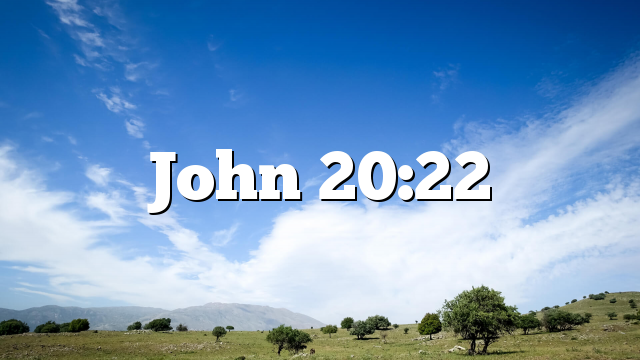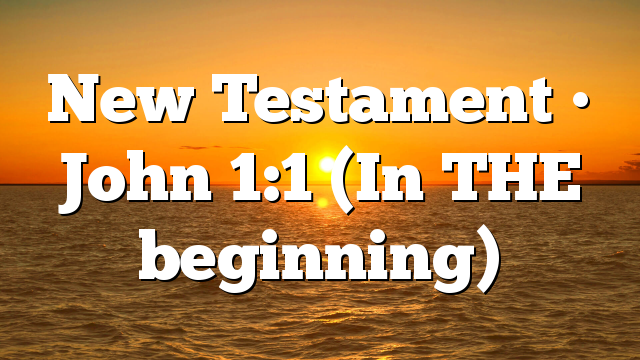John 20:22
“`html An Exegetical Analysis of John 20:22: The Imperative of Receiving the Holy Spirit An Exegetical Analysis of John 20:22: The Imperative of Receiving the Holy Spirit This exegetical study of “Breathing in Gen 2:7, John 20:22” is based on a b-greek discussion from Sun Feb 14 16:01:07 1999. The initial inquiry concerned a morphological…







